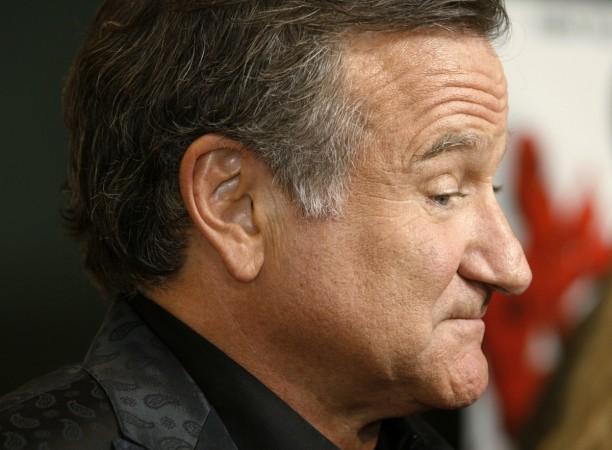
Actor Robin Williams, who died last week at the age of 63, reportedly spoke about wanting a quick death while in a rehab facility just months before he decided to end his life.
Two months before his suicide on Aug. 11, Williams checked into the Hazelden Addiction Treatment Centre near Lindstrom, Minn., to focus on his sobriety, and a fellow patient, Teresa Cohen, revealed to the media that the comedian had "something deeper going on inside him."
"Even though he would goof around from time to time, just like he did on screen, there were many other occasions where his face reflected deep depression and unhappiness," Cohen told The Sunday Express.
The comedian supposedly confessed that he was under constant pressure to look upbeat while in public.
"He told me he was always pleased and proud to meet fans but felt under constant pressure wherever he went to 'wear a happy mask' and put on some kind of zany performance," the mother of two continued. "He said he was weary to his bones and didn't believe he could really relax for a moment. 'I sometimes feel I could fall asleep standing up,' he said. It was clear that physically, as well as mentally, he was in a terrible state."
Williams was constantly worried about relapsing, and he had expressed fear of dying like an addict while at the rehabilitation centre. He also did not want his family to deal with an addict.
"He was in dread of dying while high on drugs or alcohol," Cohen said, adding, "Tears ran down his cheeks when he told me his greatest fear was relapsing and drinking himself into an early grave while his family watched helplessly."
Williams reportedly told her that "When I go, I want it to be quick and I want to be clean and sober. I don't want to die the slow, agonising death of an addict who makes everyone around him suffer too. I couldn't stand the agony of checking-out that way."
Shortly before Williams committed suicide, he was diagnosed with Parkinson's disease, and this seemed to have spiralled the comedian into depression. Moreover, the cancellation of "The Crazy Ones" is said to have devastated him, which sent him into deep depression.



!['You will be okay..': Hina Khan gets teary-eyed as Salman Khan gives her strength to fight cancer [Watch] 'You will be okay..': Hina Khan gets teary-eyed as Salman Khan gives her strength to fight cancer [Watch]](https://data1.ibtimes.co.in/en/full/806680/you-will-be-okay-hina-khan-gets-teary-eyed-salman-khan-gives-her-strength-fight-cancer.jpg?w=220&h=135&l=50&t=40)











!['You will be okay..': Hina Khan gets teary-eyed as Salman Khan gives her strength to fight cancer [Watch]](https://data1.ibtimes.co.in/en/full/806680/you-will-be-okay-hina-khan-gets-teary-eyed-salman-khan-gives-her-strength-fight-cancer.jpg?w=220&h=135)

!['Cringe, awful, horrible': Shah Rukh's daughter Suhana Khan trolled for new phone ad [Watch]](https://data1.ibtimes.co.in/en/full/806696/cringe-awful-horrible-shah-rukhs-daughter-suhana-khan-trolled-new-phone-ad-watch.jpg?w=220&h=135)